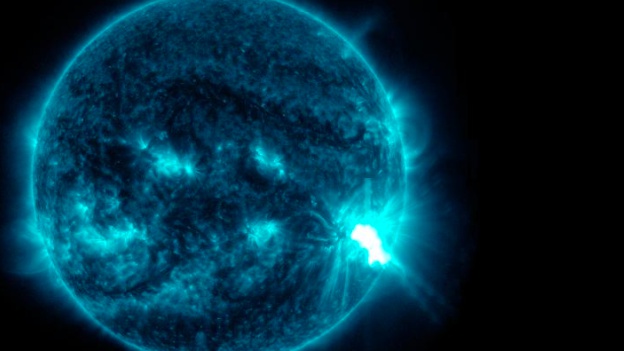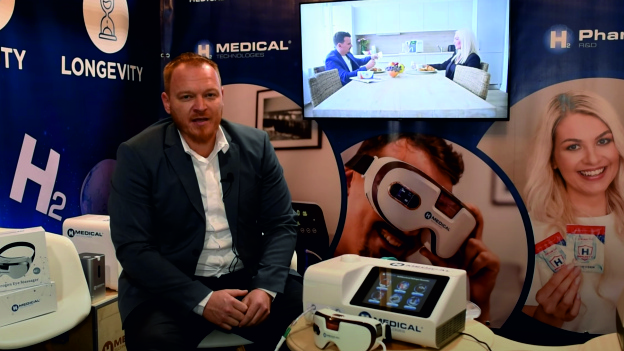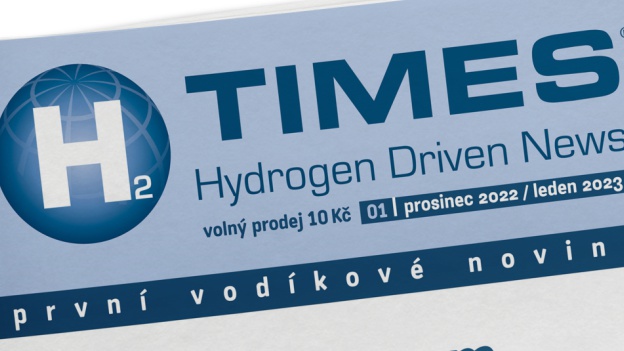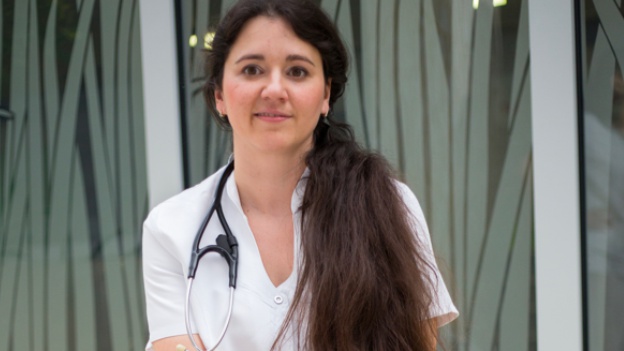The world's first study:
Molecular hydrogen helps people after covid.
Doc. PhDr. Michal Botek, Ph.D. is a Czech scientist working at the Faculty of Physical Culture Palacký University in Olomouc. Together with his colleagues, he has been studying the effects of molecular hydrogen on the human body for more than five years. Initially, he focused on the effects of molecular hydrogen on elite and amateur athletes. However, in the context of the widespread spread of covid-19 disease, he has been intensively investigating the positive effects of molecular hydrogen inhalation on significantly accelerating recovery from covid-19 since 2021.
At the beginning of 2022, Associate Professor Botek and his team published a scientific study in the prestigious scientific journal International Journal of Environmental Research and Public Health, which was the first ever in the world to demonstrate the positive, beneficial effects of inhaling molecular hydrogen on people who wanted to recover from covid-19.
Mr. Associate Professor, the results of your scientific study have proven, among other things, that it is enough to inhale molecular hydrogen for just two weeks at home or in a spa, and the human body is revitalised after having suffered from covid. Great fatigue, shortness of breath, poor quality sleep, muscle aches - all this virtually disappears. Can we speak of a "small miracle" in this connection? After all, there are many people who otherwise struggle with severe or moderate post-covid conditions, even for several months...
We were very pleased with the results of the study for several reasons. The most important was probably that the research into the effects of molecular hydrogen, which was rather unique in our country until then, produced almost immediate and tangible results in the form of significant clinical improvements in the health of people suffering from acute post-covid syndrome. As a result of our scientific success, hydrogen has begun to receive more attention in our country, including in the field of science and research, as evidenced by newly initiated studies directly at clinical sites across the Czech Republic.
What kind of response have you seen to the publication of the results of this study? From the professional and general public. Or even from operators of spa and wellness facilities...
I will not hide the fact that this study has not gone unnoticed by experts from abroad, as well as by the domestic professional public and, above all, by doctors, who were so intrigued by the results of our study that they themselves became more interested in the effects of molecular hydrogen. According to my information, several renowned spa facilities across the country have already decided to use the unique properties of hydrogen not only for people suffering from post-covid difficulties.
Some hospitals around the world, for example in China, have used molecular hydrogen to speed up the treatment of patients who have been admitted with the more severe course of covid-19. Have these hospitals shared any of their experiences with hydrogen therapy?
One of the first studies in which molecular hydrogen was used directly in the hospital setting for patients with a severe form of covid-19 came out of China. These patients were injected with hydrogen and oxygen using specially adapted ventilators and reported significant subjective improvement in their health after just two days.
Do you think that inhalation of molecular hydrogen could also be an effective prevention against covid-19 disease?
There is scientific evidence that hydrogen in the body acts as a signalling substance positively influencing a specific group of genes that stimulate the activity of antioxidant enzymes, i.e. enzymes that protect our cells against free radicals and oxidative stress, thus de facto contributing to a higher vitality of the organism and indirectly to a higher resistance to diseases. Moreover, hydrogen itself acts as a selective antioxidant in the body and also as a substance characterized by its ability to dampen the inflammatory reaction.
In a recent interview with the media, you said that "molecular hydrogen is essentially a challenge for us scientists in the 21st century". Could you please elaborate on this scientific challenge?
The application of hydrogen with health benefits was reported in the prestigious scientific journal Science as early as 1975, but the real "scientific boom" of intensive research into the effects of hydrogen was triggered by a 2007 study by Japanese scientists on the exceptional selective antioxidant capacity of the lightest gas on Earth. There are currently more than 1600 scientific studies that discuss the effects of molecular hydrogen, yet not all the mechanisms by which hydrogen affects the functioning of processes within our cells have been described in detail. This is all the more reason to wait for its elucidation.
READ THE STUDY (International Journal of Environmental Research and Public Health): https://www.mdpi.com/1660-4601/19/4/1992
Photo: Michal Botek archive / Andrew Angelov - Dreamstime.com






























